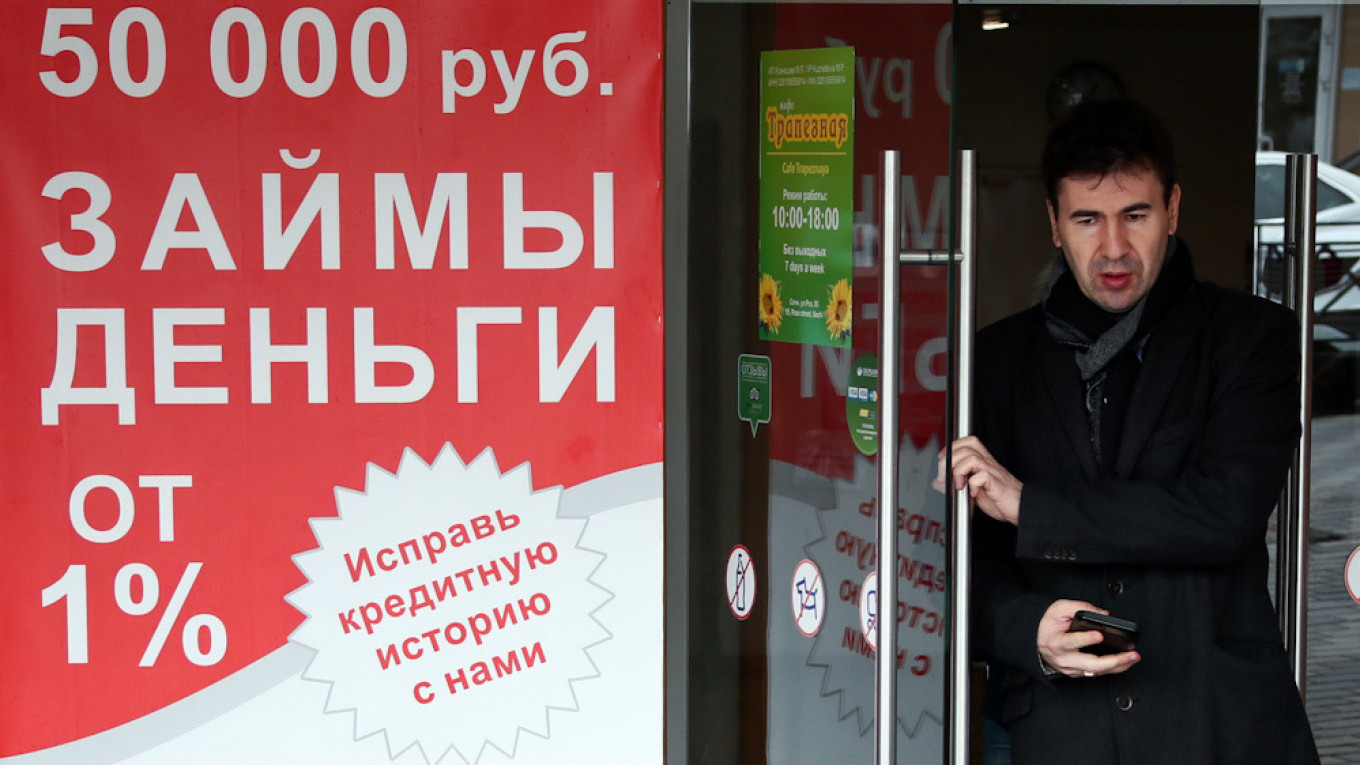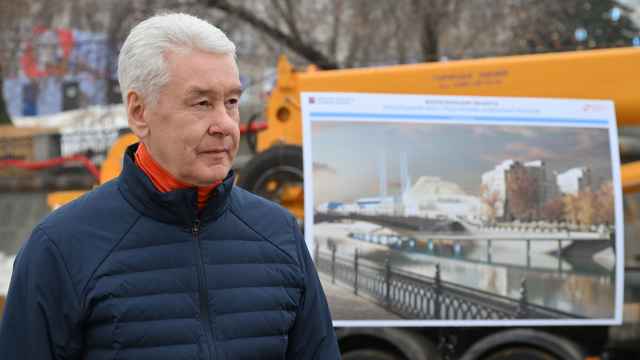Nastasia Dvoyankina, a 31-year-old art teacher from Yekaterinburg, was just managing to make ends meet.
But when found out in December 2020 that she was pregnant, she realized her monthly salary of 30,000 rubles ($410) would not be enough for two.
“I started looking around, trying to figure out how I could increase my income,” Dvoyankina told The Moscow Times in a telephone interview this week.
A friend from work told her about Finiko, a new “investment vehicle” providing returns standard banks simply couldn’t.
Dvoyankina decided to put most of her savings into the company, roughly $5,000, hoping she would be able to buy a flat by the time her baby arrived.
However, by the summer, Finiko had stopped paying any returns and she was no longer able to withdraw her investment. She realized she was one of hundreds of Russians who had been duped by the murky company.
“I didn’t think of myself as someone who would fall for a pyramid scheme… But here I am,” Dvoyankina said.
“I have a baby on the way and no money.”
Finiko, established in the southern city of Kazan in 2019, promised investors returns of 20-30% per month, as well as the opportunity to purchase apartments and cars at discount prifounded by four men, with Kirill Doronin, a charismatic Instagram influencer with a history of running pyramid schemes, acting as the face and spokesman of the group.
Authorities first took note of Finiko after it released its own cryptocurrency, FNK, on Dec. 1 2020, which appeared on cryptocurrency exchanges.
Shortly after, they opened an investigation into the dealings of Doronin and the other founders. By February of this year, Russia’s Central Bank said Finiko had “signs of a financial pyramid.”
In the beginning, the purchase of cryptocurrency was voluntary, but in June 2021, Doronin announced that the company was switching all transactions to the FNK token. After this, the value of the FNK cryptocurrency grew tenfold, according to data from Coinmarketcap, a cryptocurrency monitoring group.
Finiko stopped all payments to customers in July, as well as blocking its clients from withdrawing any funds from the company. Shortly after, the value of FNK began to plunge, indicating that large sums were withdrawn by Finiko’s owners. Doronin has since said on his Instagram page that he longer has access to the investors’ funds.
Doronin did not respond to a request for comment from The Moscow Times. On Friday local media reported that he had been arrested in Kazan.
In the two years Finiko was active it managed to attract somewhere between three and seven billion rubles ($34 million to $80 million), according to various estimates.
“It all sounded very official, not like the scams back in the day,” said Nargiza Usimova, another investor in Finiko.
“But in the end, it was a classic, simple pyramid scheme, just covered up in fancy words.”
Pyramid schemes, or Ponzi schemes like Finiko — in which investors are drawn in by promises of sky-high returns which are then paid out from money taken from additional investors — were common in the so-called "wild 1990s" as millions of Russians coped with the collapse of the Soviet Union and extreme economic instability.
The most infamous case involved the firm MMM started by Sergei Mavrodi, in which more than five million people lost a total of up to $10 billion before the scheme collapsed in 1994.
After the fall of MMM, the Russian authorities vowed to crack down on mass financial fraud, introducing a number of legislations. With growing economic prosperity brought by rising oil prices under President Vladimir Putin during his first decade in power, pyramid schemes appeared to be a thing of the past.
However, as Russian’s real incomes have fallen over the last decade and the pandemic has exacerbated economic uncertainties, more and more Russians appear to be turning to financial pyramid schemes in an attempt to get rich quickly.
Data from the Central Bank shows that in 2020, officials discovered around 300 companies that showed signs of being financial pyramids, a 35% increase from the year before.
“Russians have once again become hungry for risk due to their worsening living conditions. Today’s real disposable incomes in Russia are around 10% lower than in 2013,” economist Vladislav Inozemtsev, director of the Moscow-based Center for Post-Industrial Studies, told The Moscow Times.
Russians also took out a record 2.35 million payday loans this spring, according to data compiled by the consumer credit rating agency Equifax Russia. Russia’s Central Bank has said borrowers’ average debt has risen because of falling incomes driven by the coronavirus pandemic. Catering to this, one of Finliko’s most popular services was a promise to pay off a customer’s depth through investment in the company.
“Finiko promised to take care of my credit card debt if I transferred 30% of it, which was around 2,000 dollars,” said Mikail Kalashnikov, a mechanic from the Siberian city of Tomsk.
“At first they started to pay it back slowly but then suddenly stopped. And now I have bigger problems than before and have lost my savings.”
Experts say the rapid rise of cryptocurrencies — digital assets characterized by anonymity and a lack of government oversight — has also contributed to the re-emergence of financial pyramids. Investments linked to cryptocurrencies are now the most common scams, said Andrey Kolmakov, head of the high-tech crime investigation department at Group-IB in Moscow.
“Cryptocurrencies could become the new El Dorado not only in Russia, but all across the globe. Ordinary people cannot understand what they are investing in,” Inozemtsev said.
The online nature of cryptocurrencies, experts say, means companies like Finiko are now able to draw in clients across borders.
Ilse De Jonge, a Dutch citizen, said she invested 10,000 euros in Finiko on the advice of a friend online.
“A person I trusted told me that they had invested 5,000 euros in this company and received 50 euros a day.” De Jogne told The Moscow Times.
“I transferred the money to Finiko. But it turned out that we were all deceived by financial fraudsters and the company stole the capital of investors,” she said.
Keeping the faith
Mavrodi, the charismatic MMM head was placed on Russia’s wanted list after MMM's demise in 1994.
He went into hiding before eventually being arrested in 2003 and sentenced to four and a half years in prison for criminal fraud. After his release, he attempted to revive MMM through a number of new financial schemes. Despite his notorious reputation, he retained a group of ardent followers, who even paid for his funeral following his death in 2018.
As Finiko disintegrates, some of Doronin’s investors are also keeping faith in the man they trusted with their savings.
“I believe in Doronin, he’ll get us the money back, just you wait,” insisted Maksim Kuznikin, a self-described early investor in the company who said he put over “half a million rubles” into Finiko.
“I will go with him to the end of the world.”
A Message from The Moscow Times:
Dear readers,
We are facing unprecedented challenges. Russia's Prosecutor General's Office has designated The Moscow Times as an "undesirable" organization, criminalizing our work and putting our staff at risk of prosecution. This follows our earlier unjust labeling as a "foreign agent."
These actions are direct attempts to silence independent journalism in Russia. The authorities claim our work "discredits the decisions of the Russian leadership." We see things differently: we strive to provide accurate, unbiased reporting on Russia.
We, the journalists of The Moscow Times, refuse to be silenced. But to continue our work, we need your help.
Your support, no matter how small, makes a world of difference. If you can, please support us monthly starting from just $2. It's quick to set up, and every contribution makes a significant impact.
By supporting The Moscow Times, you're defending open, independent journalism in the face of repression. Thank you for standing with us.
Remind me later.







